Faculty Biographies
9–10 April 2021, Virtual Meeting
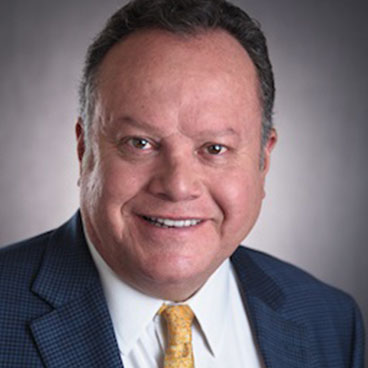
Rafael Fonseca, MD
Mayo Clinic, Arizona
Rafael Fonseca, MD, is the Getz Family Professor of Cancer, professor of medicine, interim executive director of the Mayo Clinic Comprehensive Cancer Center, director for innovation and transformational relationships, and a consultant in the Division of Hematology/Oncology at the Mayo Clinic in Arizona. He earned his MD at Universidad Anahuac, Mexico. He completed a residency in internal medicine at the University of Miami, FL, and a fellowship in hematology and medical oncology at Mayo Graduate School of Medicine, Rochester, MN. He was named a clinical investigator for the Damon Runyon Cancer Research Fund. He is a visiting healthcare fellow at the Goldwater Institute.
Dr Fonseca’s practice has focused on the diagnosis and treatment of plasma cell disorders and leading the multiple myeloma team in its effort to develop a better understanding of the disease and its impact on patients. In his laboratory, Dr Fonseca has led his team of researchers in concentrating on the genetic nature of the clonal cells of plasma cell disorders, myeloma bone disease, prognostic markers, and development of new therapies for the disease.
Throughout his training and career, Dr Fonseca has received numerous awards and honors, including the Damon Runyon-Walter Winchell Clinical Investigator Award, and the International Waldenström Macroglobulinemia Research Award. Most notably, he is a Mayo Clinic Distinguished Investigator, the highest academic distinction given to investigators at his institution. Dr Fonseca holds memberships and serves in positions for organizations such as the American Society of Clinical Oncology, American Society of Hematology, American Association for Cancer Research, and the International Myeloma Society. His research has been funded by the National Cancer Institute (R01, P01, SPORE), the Leukemia & Lymphoma Society, the Multiple Myeloma Research Fund, and the Damon Runyon Cancer Research Fund. Dr Fonseca serves as reviewer and in editorial capacities for medical publications including Blood, Lancet, Nature Medicine, Cancer Cell, Leukemia, and the New England Journal of Medicine, among others. He has given many national and international presentations as a visiting professor, and has authored numerous articles (over 300), book chapters, editorials, abstracts, and letters.
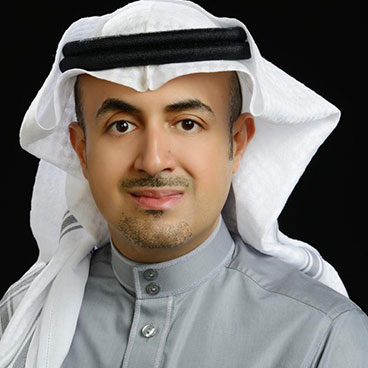
Majed Alahmadi, MD
King Abdulaziz Medical City, Jeddah, Saudi Arabia
Dr Majed Alahmadi is a consultant in adult hematology/bone marrow transplantation at Princess Noorah Oncology Center at King Abdulaziz Medical City, Jeddah, Saudi Arabia, and assistant professor at King Saud Bin Abdulaziz University for Health Sciences, Riyadh, and director of the hematology fellowship program. He received his medical degree from King Abdulaziz University. He completed residency training at Western University, London, ON, Canada, in internal medicine and hematology, followed by a clinical fellowship in lymphoma and multiple myeloma at Princess Margaret Cancer Centre, Toronto, ON. He is a fellow of the Royal College of Physicians of Canada and certified by the American Board of Internal Medicine.
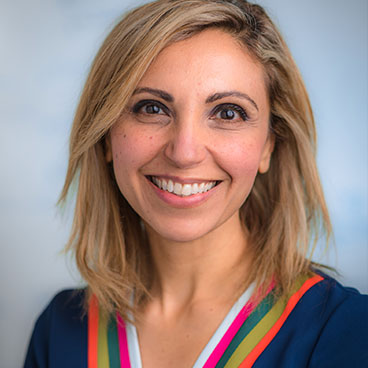
Irene Ghobrial, MD
Dana-Farber Cancer Institute
Dr Irene Ghobrial is currently a professor of medicine at Dana-Farber Cancer Institute (DFCI), Harvard Medical School, and the Lavine Family Chair for Preventative Cancer Therapies. She is also an associate member of the Broad Institute of the Massachusetts Institute of Technology and Harvard University. She is director of the clinical investigator research program at DFCI, director of translational research in the Department of Multiple Myeloma, director of the Center for Prevention of Progression, and co-leader of the Dana-Farber/Harvard Cancer Center lymphoma and myeloma program. Dr Ghobrial received her MD from Cairo University, Egypt. She completed a residency in internal medicine at Wayne State University, Detroit, MI, and then moved to the Mayo Clinic in Rochester, MN, to train as a hematology-oncology fellow.
Dr Ghobrial’s laboratory and clinical studies focus on identifying and developing effective therapeutic interventions for precursor conditions of myeloma (monoclonal gammopathy of undetermined significance and smoldering multiple myeloma). This can only be achieved by defining genomic and epigenomic markers that are associated with disease progression, microenvironmental changes that affect tumor progression to myeloma, and mechanisms of immune evasion in disease progression. The focus of her research is to identify novel biomarkers of disease progression and help develop potentially curative therapies in the pre-malignant phase that exploit the immune microenvironment in the bone marrow. She developed a large, patient-empowering observational study for these precursor conditions (the PCROWD study) and recruited over 3,000 patients. She is also the principal investigator of the first screening study for multiple myeloma in the US, the PROMISE study. This trial is currently screening 30,000 individuals at high risk of developing myeloma, including those of African American descent or those with first-degree relatives with myeloma.
Dr Ghobrial is a well-funded investigator who received continuous National Institutes of Health funding over the last 12 years and foundation collaborative grants, including the Leukemia & Lymphoma Society SCOR program and Stand Up To Cancer grants dream team. She has over 250 publications in many prestigious journals and has presented and led many national and international meetings on myeloma. She is the recipient of the Robert A. Kyle Award for Waldenström’s macroglobulinemia, the Ken Anderson Young Investigator Award, and the Mentor of the Year Award at DFCI.
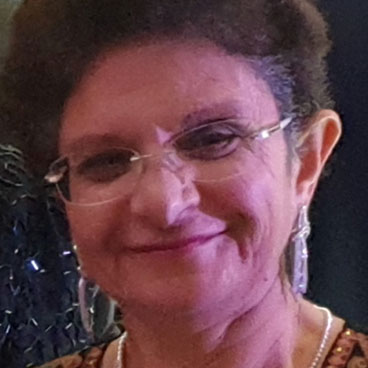
Mervat Mattar, MD
Cairo University, Egypt
Dr Mervat Mattar is a professor in the Clinical Hematology Unit, Department of Internal Medicine, Faculty of Medicine, at Cairo University, Egypt. She earned her MBBCh, MSc, and MD degrees from Cairo University. She is a co-founder and head of the adult clinical hematology subspecialty training and examination board of the Cairo University Kasr Al-Ainy Center of Clinical Oncology, a member of the university’s Department of Internal Medicine graduate and postgraduate teaching and training examination board, and participates in the clinical hematology examination board of many Egyptian universities, including Assiut and Mansoura Universities. Additionally, she supervises many academic and postgraduate researchers in the fields of internal medicine and clinical hematology. She is a trainer in numerous clinical hematology preceptorships for junior physicians and nurses at Kasr Al-Ainy Faculty of Medicine University Hospitals.
Dr Mattar has participated in many national and global hematology-oncology clinical studies as site principal investigator, among them ENSTXTnd (extending molecular response with nilotinib in newly diagnosed chronic myeloid leukemia patients in chronic phase), MAXIMA (maintenance therapy with rituximab in patients with non-Hodgkin lymphoma), and PANORAMA (panobinostat plus bortezomib and dexamethasone in previously treated multiple myeloma).
Dr Mattar is vice president of the Pan Arab Hematology Association, a founding member of the Egyptian Society of Hematology and Research and the Egyptian Hematology Oncology Group, and a member of the International Society of Hematology. Her research has been published in several peer-reviewed journals, including International Journal of Hematology, Journal of the Egyptian National Cancer Institute, Annals of Hematology, European Journal of Internal Medicine, Leukemia & Lymphoma, and Clinical Lymphoma, Myeloma and Leukemia.
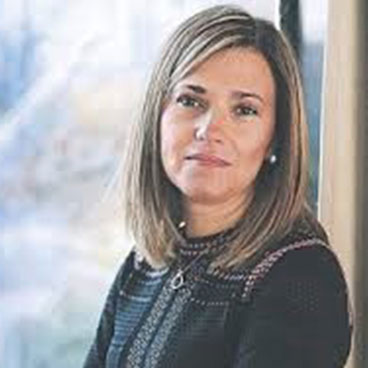
María-Victoria Mateos, MD, PhD
University of Salamanca
María-Victoria Mateos, MD, PhD, is a consultant physician in the Hematology Department and associate professor of medicine at the University of Salamanca, Spain. She is director of the myeloma program and coordinates the clinical trials unit in Salamanca’s University Hospital Hematology Department. She received her medical degree from the University of Valladolid in Spain, and completed a residency in hematology at the University Hospital of Salamanca, where she also completed a doctoral degree.
Dr Mateos serves as coordinator of the Spanish Myeloma Group, with direct involvement in the design and development of clinical trials. She has coordinated many clinical studies, especially in the smoldering myeloma setting, and these trials have profoundly influenced current options for the management of these patient populations.
Dr Mateos is a member of the International Myeloma Working Group, the International Myeloma Society (IMS), the European Hematology Association (EHA), and the American Society of Hematology (ASH). Among her invited presentations, she has contributed to the educational sessions of EHA 2012, ASH 2013, the American Society of Clinical Oncology (ASCO) 2015, EHA 2016, and ASCO and ASH 2017. She served on the ASH Scientific Committee on plasma cell diseases from 2015–2019 and on EHA’s Scientific Program Committee and Advisory Board from 2013–2020, and was chair of the Scientific Program Committee in 2019. She was a councilor on the EHA Board from 2015–2020, a member of the Steering Committee for the Society of Hematologic Oncology, a member of the IMS board, and a member of the European School of Haematology Scientific Committee. She received the Brian G.M. Durie Award in 2019 recognizing excellence in myeloma research. Dr Mateos has published over 250 original papers in international journals.
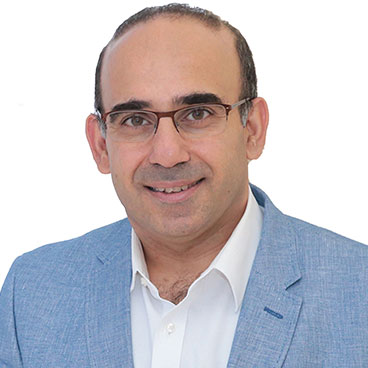
Mohamad Mohty, MD, PhD
Saint-Antoine Hospital and Sorbonne University
Mohamad Mohty, MD, PhD, is full professor of hematology and head of the Hematology and Cellular Therapy Department at the Saint-Antoine Hospital and Sorbonne University, Paris, France. He obtained his medical degree from the University of Montpellier, France, and his PhD from the University of Marseille, France. He also undertook postdoctoral work in the Hematology Department, Imperial College, Hammersmith Hospital, London, UK.
Prof Mohty is head of a translational research team (INSERM team N°7) at the Saint-Antoine Research Center in Paris. His research is focused on the pathophysiology and immunobiology of normal and pathologic antigen-presenting cells, especially the impact of novel immunomodulatory agents such as proteasome inhibitors, immunomodulatory drugs, and hypomethylating agents. He has a special clinical focus on the development of reduced-toxicity conditioning regimens, immunotherapy, and different aspects of therapy of acute leukemia and multiple myeloma.
Prof Mohty is currently president of the European Society for Blood and Marrow Transplantation (EBMT). He serves on the board of the EBMT, and the Intergroupe Francophone du Myélome. He is a member of the American Society of Hematology, American Society of Clinical Oncology, American Society for Blood and Marrow Transplantation, European Hematology Association, and EBMT. Prof Mohty has published more than 500 peer-reviewed articles in the fields of stem cell transplantation, leukemia, and myeloma in different hematology and immunology journals. He has lectured in more than 70 countries. He also serves as editor-in-chief of the journal Bone Marrow Transplantation, as associate editor for Leukemia, European Journal of Haematology, and Blood Cancer Journal, as a member of the editorial board of Haematologica, and as a regular reviewer for different immunology, hematology, and cancer journals such as Blood, Journal of Clinical Oncology, The Lancet, and Nature Reviews.

Keith Stewart, MB, ChB, MBA
University of Toronto, University Health Network, Mayo Clinic
Dr Keith Stewart is Vice President, Cancer, at University Health Network in Toronto, ON, Canada, and medical director of the Princess Margaret Cancer Centre. He is vice-president of Toronto Central South Regional Cancer Program, Ontario Health (Cancer Care Ontario), and holds the Richard H. Clark Chair in Cancer Medicine. He has served in several healthcare leadership roles across both research and clinical practice in Toronto and at the Mayo Clinic, where most recently he was director of the Center for Individualized Medicine. Dr Stewart earned his medical degree at Aberdeen University Medical School, UK, and an MBA degree at the Ivey Business School, University of Western Ontario. He completed an internship at the Glasgow Royal Infirmary, UK; a residency in internal medicine at Queens University, Kingston, ON; a fellowship in hematology at the University of Toronto; and a fellowship in research at New England Medical Center in Boston.
Dr Stewart’s research focuses on the biology, genomics, and individualized treatment of multiple myeloma. He has over 25 years of sustained national funding for a laboratory research program in genomics and biology of myeloma, and has led numerous clinical trials of novel therapeutics for this disease from first-in-man to large practice-changing studies. He consistently publishes in high-impact scientific journals and holds editorial and reviewer responsibilities for several prominent publications, such as serving as an associate editor of Blood and ASH Clinical News. A frequently invited speaker, Dr Stewart gives presentations on his research both domestically and internationally, and has authored over 350 journal articles, abstracts, and other written publications.
Dr Stewart has received numerous awards and honors, among them the Scott-Whitmore Chair in Hematology and Gene Therapy, conferred by the University of Toronto. He holds memberships with numerous professional organizations, including the Royal College of Physicians and Surgeons of Canada, National Cancer Institute, and American Society of Clinical Oncology. He has served on the advisory and medical or scientific boards of many private and public institutions including currently as a non-executive board member of Genomics England.





